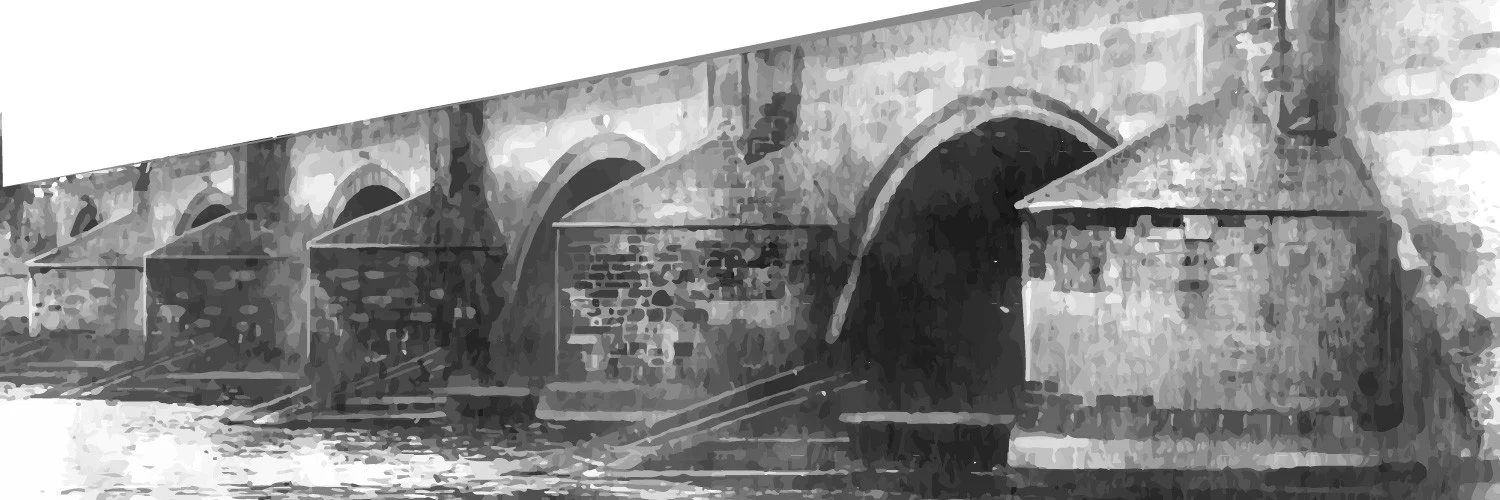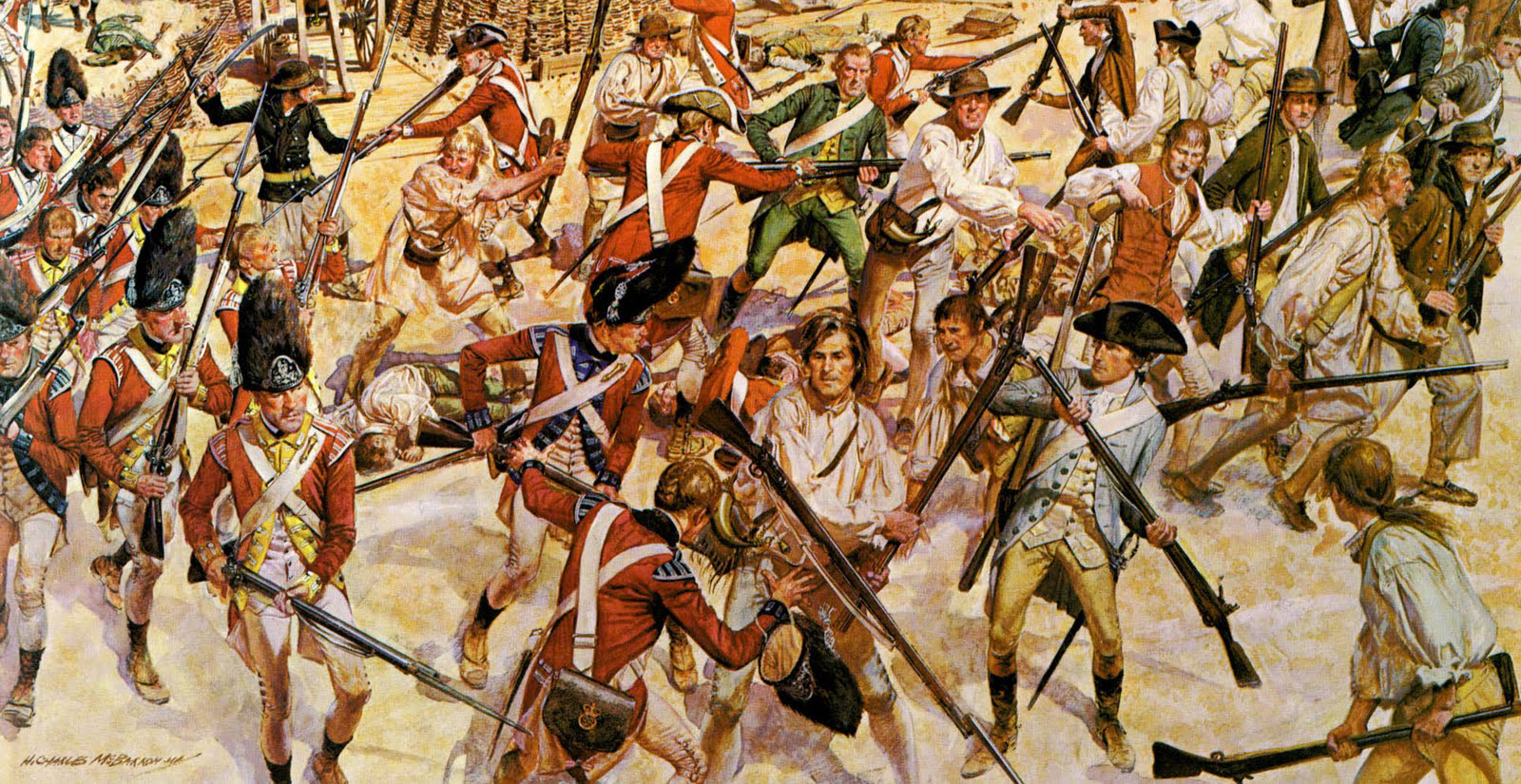It’s been another big year for The Strategy Bridge and we’re thankful for the great community that helped us span our third year of work developing writers, thinkers, and practitioners in the realms of strategy, national security, and military affairs. As our community enters a new year, we look forward to expanding not just our own individual efforts in the national security space, but our conversations and programming to develop new thinkers and writers. Your recent contributions to The Strategy Bridge will be instrumental in providing the resources and network for the community to grow—thank you. We look forward to working with you this year...and stay tuned for more great work from The Bridge community!
James Moody: American Soldier
The traditional lore of the American Revolution holds that small groups of Patriot citizen-soldiers using unconventional tactics defeated a superior foe, who was using European tactics unfit for combat in the wilderness of North America. The lesson modern strategists are led to take from the experience of British operations during the American Revolution is that imposing one’s military doctrine in an alien environment is a recipe for disaster. Founding lore, however, overlooks a class of colonists lost in the clamor to understand to what transpired in 1776: Loyalists.
Ceasefires in Syria: A Post-Mortem
Policymakers and diplomats view ceasefires as a positive step toward peace because they present the conditions under which trust can be engendered between opposing sides in the Syrian civil war. Some academics have even found statistical evidence supporting this claim. But of the 44 ceasefires agreed to throughout Syria since 2012, only five preceded rebels surrendering, and only seven ceasefires in Syria have endured to the present. The remaining 32 ceasefires have failed. A survey of the failed ceasefires provides three logical pathways from ceasefires to offensives: leverage, buying time, and collapse of cooperation.
Reorganizing the Joint Force for a Trans-Regional Threat Environment
While the U.S. remains the single most powerful actor on the international stage, its influence and ability to react to the growing threat that transcends its own internal artificial boundaries and planning processes is not keeping pace with the evolution of the environment. With the rise of global near-peer competitors and regional powers with transnational reach, the U.S. military must become more flexible and adaptable at crossing multiple boundaries simultaneously if it seeks to maintain its competitive advantage. The only way to achieve this is to transform our current command and control structures to allow us to be a global power that actually acts and thinks globally.
Making Old Things New Again: Strategy, the Information Environment, and National Security
Developing the depth and flexibility of mind and understanding to work effectively within the information environment, in addition to the operational environment, is challenging. However, given the systemic changes in virtually every field of human activity during the new century, and the threats they may pose to our country’s security and prosperity, this is a challenge we must accept.
#Reviewing My War Gone By, I Miss It So
My War Gone By, I Miss It So is a story about Loyd’s struggle of emotional turmoil and his abuse of alcohol and heroin becoming the solution. It identifies with a generation that has experienced the horrors of war while figuring out their place when they return to their old world and coping with the enduring memories. His candid struggles with drug addiction offer the perfect companion to Loyd’s struggle with his addiction to war. The deep, personal struggles when home, and how alcohol soon moved to heroin as the coping mechanism to process his emotions, allow the reader to feel the internal struggles and conflict. This emotional conflict is not unique to Loyd. His ability to be so candid, and describe his journey with such clarity, pulls the reader into a shadowy world many are unfamiliar with and lack the ability to comprehend. Beyond the field of war, the book will additionally relate to readers who struggle with substance abuse as a coping mechanism for their respective problems.
A Year in #Reviewing
Francis Bacon once wrote, "Reading maketh a full man; conference a ready man; and writing an exact man." Reading was the beginning of study for Bacon, and the reading he advised in the pursuit of knowledge ranged widely. But we must also think, discuss, and write about the knowledge we pursue. We've taken this advice to heart here at The Strategy Bridge, and the #Reviewing series is one monument to our belief in its truth. The interested reader will find here a collection of our reading, thinking, and writing—of our #Reviewing—for 2016. The interested reader will also find a group of authors nailing their whispers to the wall making themselves and our community stronger. We're proud to be a part of such a community.
Tactical and Strategic Interdependence
Only by understanding the proper framework and context within which to place and employ the means towards the ends can tactical victories and strategic successes possibly be achieved. Strategy and tactics are absorbed and coextensive in the mind of the commander, within the plan of war, which decides combat, the crucial key connecting and explaining strategy, tactics, and their relationship.
The Myth of Total War
It is not useful to define wars by measures such as size, scale, or commitment because these are subjective and thus cloud analysis. This is particularly true in regard to such things as cost and casualties. How much a war costs, how many people it kills, and what it consumes and destroys are certainly important issues—no one disputes this—but these are not bases for critical analysis because they fail to generate solid, tangible, universal foundations for discussion, which is exactly what writing on such subjects should provide.
Revisiting Thucydides’ Explanation of the Peloponnesian War
Reviewing the work of scholars who have examined the Peloponnesian War gives grounds for questioning not only Thucydides’s purportedly dispassionate style, but also one of his most well-known conclusions: “The growth of the power of Athens, and the alarm which this inspired in Lacedaemon, made war inevitable.”
The Myth of Russian Aggression and NATO Expansion
Russian aggression has resulted from a combination of many different factors that created a situation where the benefits of aggression significantly outweighed their costs. While Russians certainly like using NATO expansion to justify aggression, this article describes facts suggesting Russia’s motives have little to do with fears over NATO expansion or military forces.
What the Super Hornet Decision Reveals about Canadian Strategic Thinking
The question that confronts Canada in this environment is not which is the right fighter for our interests. The question is, “Does Canada realise that the strategic environment is no longer what it was?” The elephant may choose to roll over on the mouse just to make a point. The house might be firebombed from within, again, just to make a point. Canada’s careful, cold-nosed policies on “how little is enough” have become decidedly more difficult.
How Cicero Molds a Virtuous Leader out of Plato: Ancient Lessons in Moral Education and Duty
Military leaders must continue to uphold public confidence with exemplary behavior. This requires renewed commitment to education, self-improvement, reason, and duty. Placing blanket ethics training aside, we can start to relearn virtuous living by picking up copies of Republic and De Officiis. Indeed as professionals, we have an obligation to self-train on these classic works and groom our own moral excellence, for the trust of the society we serve depends on it.
Conceptualizing Emerging Strategic Challenges in the Cyber Age
Few at CyConUS were optimistic about the future of cyber restraint among states. Rather, it was the assertiveness of nation-states that featured prominently in many of the keynotes and panel discussions. Whether the U.S. and its allies can respond effectively to these challenges, and the many others likely to follow, remains an open question. The cyber era is one of asymmetric conflict. For all of the billions of dollars the U.S. spends on cybersecurity through the departments of Defense and Homeland Security, determined attackers can find success for a minuscule fraction of that cost. Bending that cost-curve in a more favorable direction must be a top priority for the U.S. and its global partners.
#Reviewing What is the Worst That Could Happen?
Let us not turn away in the face of unattainable limits. Instead, we should push those limits and make our best attempt to imagine the unthinkable and prepare accordingly. That being said, there is no free lunch. How much time and money ought the U.S. government allocate to wargaming worst cases, or on a smaller scale, ought you devote to reading this book? The first question is too large for this review, but I will say that What Is The Worst That Could Happen? was well worth my $37.95 and an afternoon’s time, and I am confident that any reader of The Bridge will feel the same.
#Reviewing Decoding Al-Qaeda's Strategy
It is worth reviewing Al Qaeda’s strategic DNA for insights into what the group and its various factions would seek to achieve if given the opportunity. This leads the author to a prescription to contest Al Qaeda’s Salafist ideology by pointing out their extensive references to Maoist and Western strategists. I am skeptical that this would be a beneficial approach from agencies within the U.S. at least. But, the value of this book is its message that the flea remains vigorously at work against the dog, even if we would like to ignore that itch from time to time.
The Strategic Calculus of Mass Murder: Why Genocide?
To understand mass violence and devise effective interventions, one must break from the popular notion that mass slaughter is purposeless barbarity. The next time the Islamic State or some other actor perpetrates an act of mass violence during a military campaign, we must ask ourselves what the leadership might hope to gain or achieve, and why decision-makers would allow such insanity. There may be a method to their madness, or an underlying strategic rationality being masked by their barbarity.
Archimedes' Feet
Ethics is not just intellectual in its dimension, but spiritual, and that the spiritual dimension is the foundation, and thus primary dimension where discussion should begin. If ethics, morality, or strategy were a purely intellectual endeavor, then all we would need is an algorithm to do it effectively. But that is not how ethics works.
Developing Strategic Leaders: An Option
A Case for Providence: #Reviewing Destiny and Power
Lying beneath this humanity is the unrelenting belief that each day of tedium, each crippling struggle, progresses one toward that individual peak. It’s the foundation that built Bush into a steward that led the U.S. through shifting times, though he scarcely heaped much praise from it in the moment. Rather, he bore through it, finding solace in the records he took on paper and in dictation: his journals. The ones with which Meacham has used to fill the pages of Destiny and Power, and in doing so, craft a legacy in a time with even less certainty and even more fear than the one George H.W. Bush occupied.





















